Elliott wrote this at the end of his 2nd year studying Linguistics here at Christ's College, Cambridge. He's from Erdington, Birmingham in the West Midlands, and did A-Levels in Spanish, Psychology and Art, plus Maths to AS level.
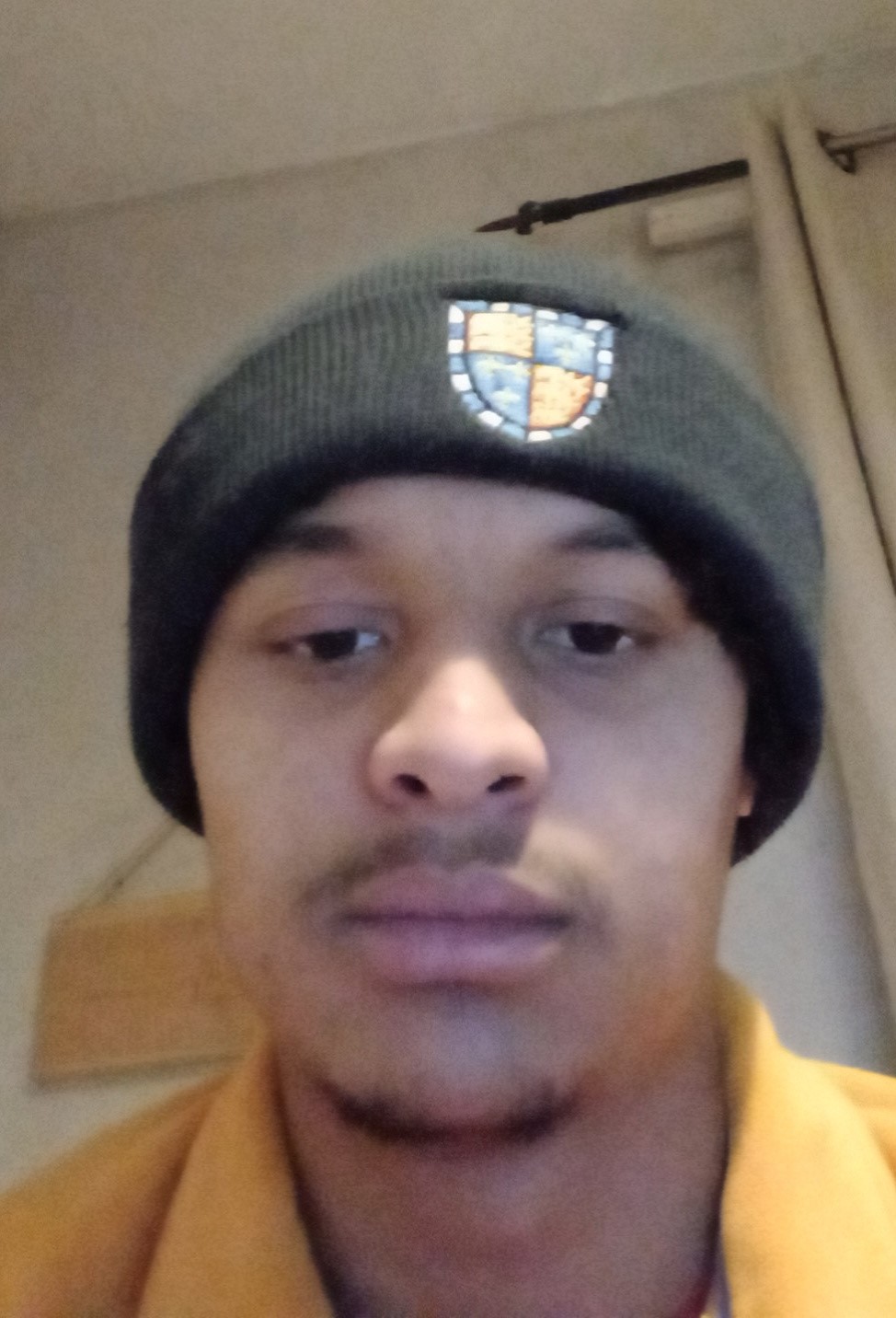
What attracted you to Linguistics?
I applied to Psychology, or Psychology and Philosophy, pretty much everywhere else; that's what a lot of my preparation and personal statement were about. I knew I wanted to apply to Cambridge, so I went through the courses. I thought about choosing Psychological and Behavioural Sciences (PBS). But then I also saw Linguistics, and wondered what it was. I found a book about it, read it and got really into it. I thought it was really interesting, and similar to psychology (at least, I think so!). I was really torn between the two, and honestly the deciding factor was that fewer people apply to linguistics, so I decided to apply for that.
Was there anything you were nervous about in relation to your course?
I wasn't sure how much of the course was technical and scientific, and how much of it would be more 'washy', theoretical and philosophical, so I asked about that in my interview.
Now that I'm here, I realise that a lot of it is to do with the modules you choose: some of them are more science-leaning than others, so you can choose which way you want to go, which I've done. I like the fact that the course is so broad. Papers like Syntax, Language Typology and Psycholinguistics all use lots of scientific techniques, including data and experiments, which I really like. But I have realised that the vast majority of papers have some technical aspects, so if this is something on your mind, I wouldn't let the fact that Linguistics isn't a STEM subject put you off. It still takes a very scientific approach.
Why did you apply to Christ's?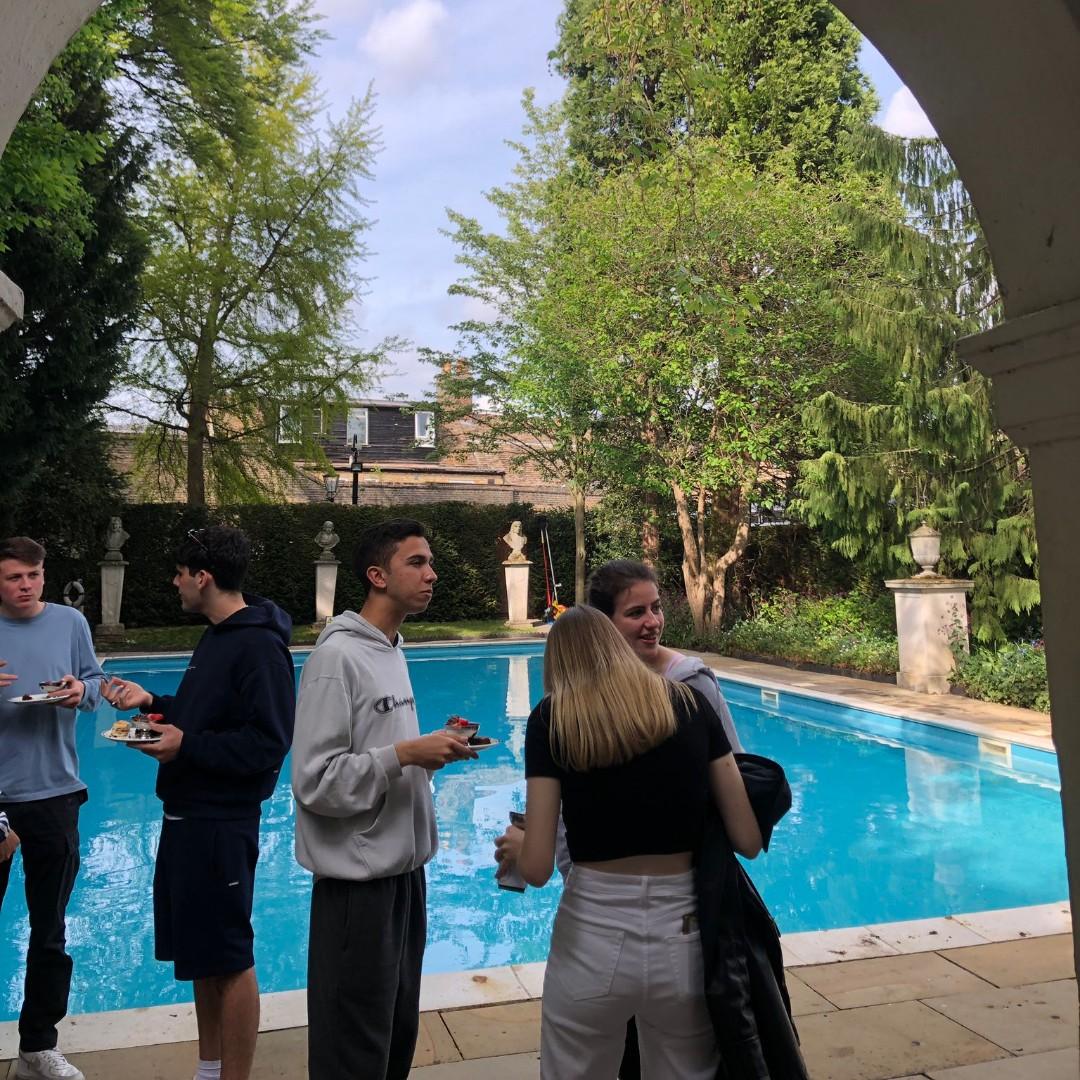
I did the LPN summer school, so I'd stayed in both Christ's and Sidney Sussex as part of that. Christ's looks really nice, and I preferred Christ's over Sidney. I didn't have much else to go on, so thought I'd just apply to Christ's. It's also the first alphabetically, which meant it kept coming up first when I did do some research, and it had a pool, which was another reason to choose it.
What's your favourite place in College?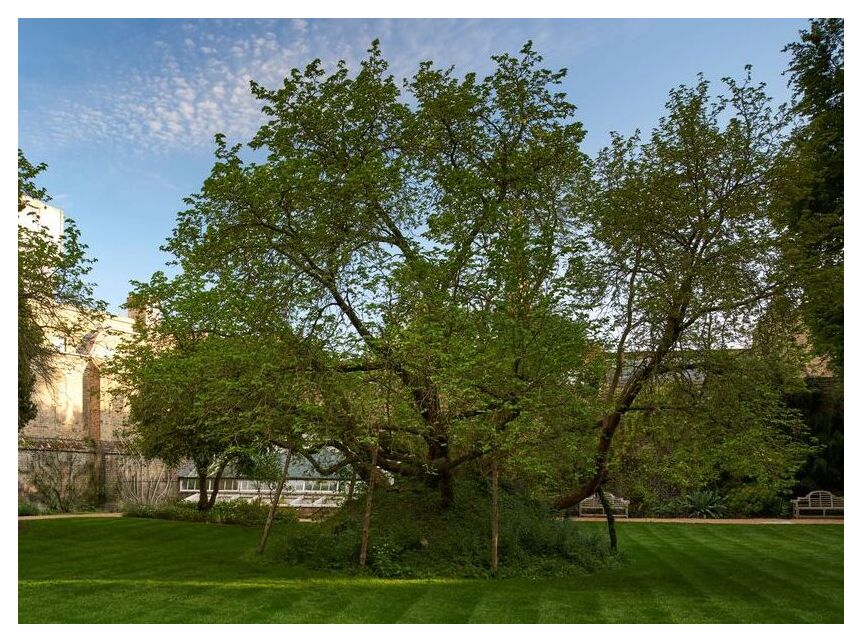
When I came to Christ's for my interview, I sat on a bench near Milton's mulberry tree in the Fellow's garden. I still like going to sit there, especially at the start and the end of every term. the fellow's garden in general is a really nice place to sit, but that one bench in particular is my favourite spot.
The pool is also a massive thing for me, and is definitely up there with my favourite things. But the gardens have to be the best thing overall - there's pretty flowers around college all the time, and the College gardeners are really good at what they do.
What advice would you give to someone struggling to choose a college?
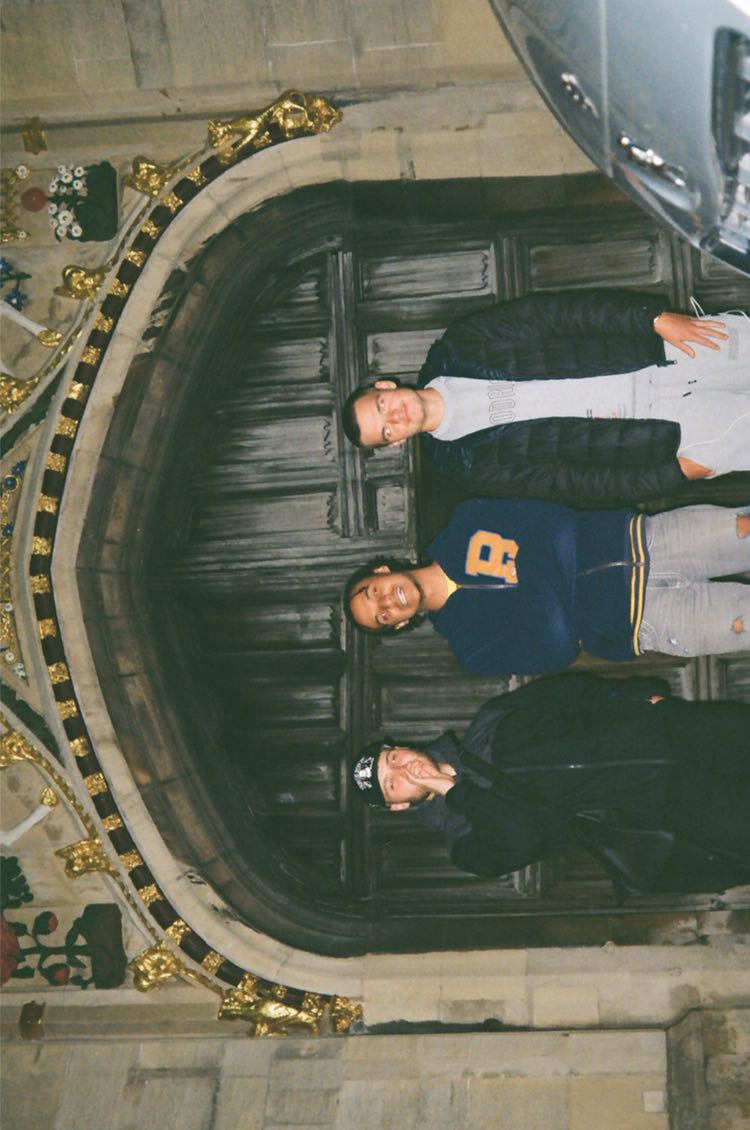
I would say that college choice doesn't matter that much: most of the colleges are pretty similar. The most important thing to get right is your course, not your college. Go and visit some Colleges if you can, see if any of them appeal to you for any reason, then just pick one. It doesn't have to be too deep. You might not end up there anyway, because of the Pool, so it's best not to get your heart set on one, because you might then be disappointed even if you get into Cambridge.
Think about practical things, too: are the facilities right, are they in a good location, do they give any particular grants or bursaries you'll be elligible for?
How did you find the applicaiton process?
My school was pretty good, and the summer school I went on was really helpful in explaining what I needed to do for a linguistics application. There was an admissions assessment, for which there were a couple of practice papers online. I went through one slowly, and tried one in timed conditions to get familiar with the questions and technique. That was pretty much all the preparation I did for that bit.
For the interview, I did a lot of reading about linguistics! I read Pinker's The Language Instinct, which is recommended as a good introductory book to linguistics. There were also a couple more niche books that were more philosophical but linguistic as well, like Wittgenstein's Tractatus Logico-Philosophicus and Bourdieu's Language and Symbolic Power. That gave me enough stuff to talk about in the interview!
For my personal statement, I talked about all the stuff I'd read, and what I'd done, but was always sure to take it one step further than that: what it made me think, and links between my different ideas. I think that holds for pretty much whatever course you're applying to.
My school gave me a mock interview, with one guy who knew something about linguistics, plus my Spanish teacher (who didn't!). It was useful practice to get asked questions and have to reply on the spot while talking through my answers.
What advice would you give to someone who wants to apply to linguistics?
Read books about linguistics! If you don't speak another language, it might be worth thinking about picking one up. A little knowledge about another language and even the process of learning it can provide some good perspective; I wish I was better at more languages!
What were you looking forward to and what were you worried about starting Cambridge?
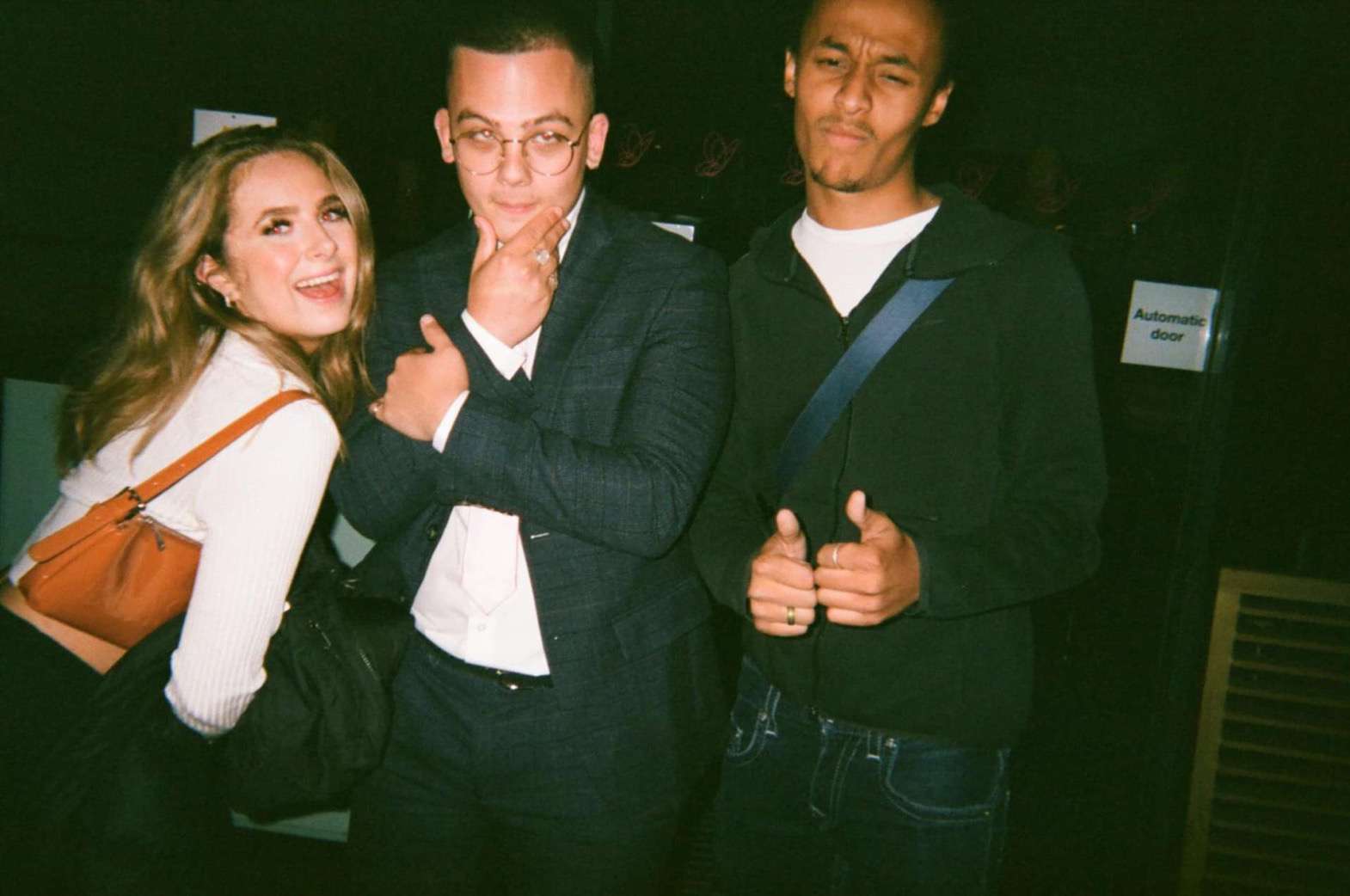 I had a bit of the obvious worries in the background: moving to a new place, making new friends, not liking my room, all that stuff. But I think my biggest worry was that the people would all be a bit weird or really posh. That wasn't the case. There are some weird people, and there are some posh people in Cambridge, but it's definitely not all of them, and you find the people you like!
I had a bit of the obvious worries in the background: moving to a new place, making new friends, not liking my room, all that stuff. But I think my biggest worry was that the people would all be a bit weird or really posh. That wasn't the case. There are some weird people, and there are some posh people in Cambridge, but it's definitely not all of them, and you find the people you like!
I was excited about the cool bits of the 'Cambridge Experience': going to formal dinners and stuff. I was excited to leave home and live somewhere new, and also to start my course and learn something new!
What helped you to settle in?
I really liked my room: putting things on the walls and my own bedding in made my room feel nicer and I knew I had a good place to come back to. Making friends obviously helped too, so I had people to stay busy with and a croud to fit in. I remember the first time my friends from home came up, that was good and gave me a bit of a taste of home.
What was it like to start lectures and supervisions?
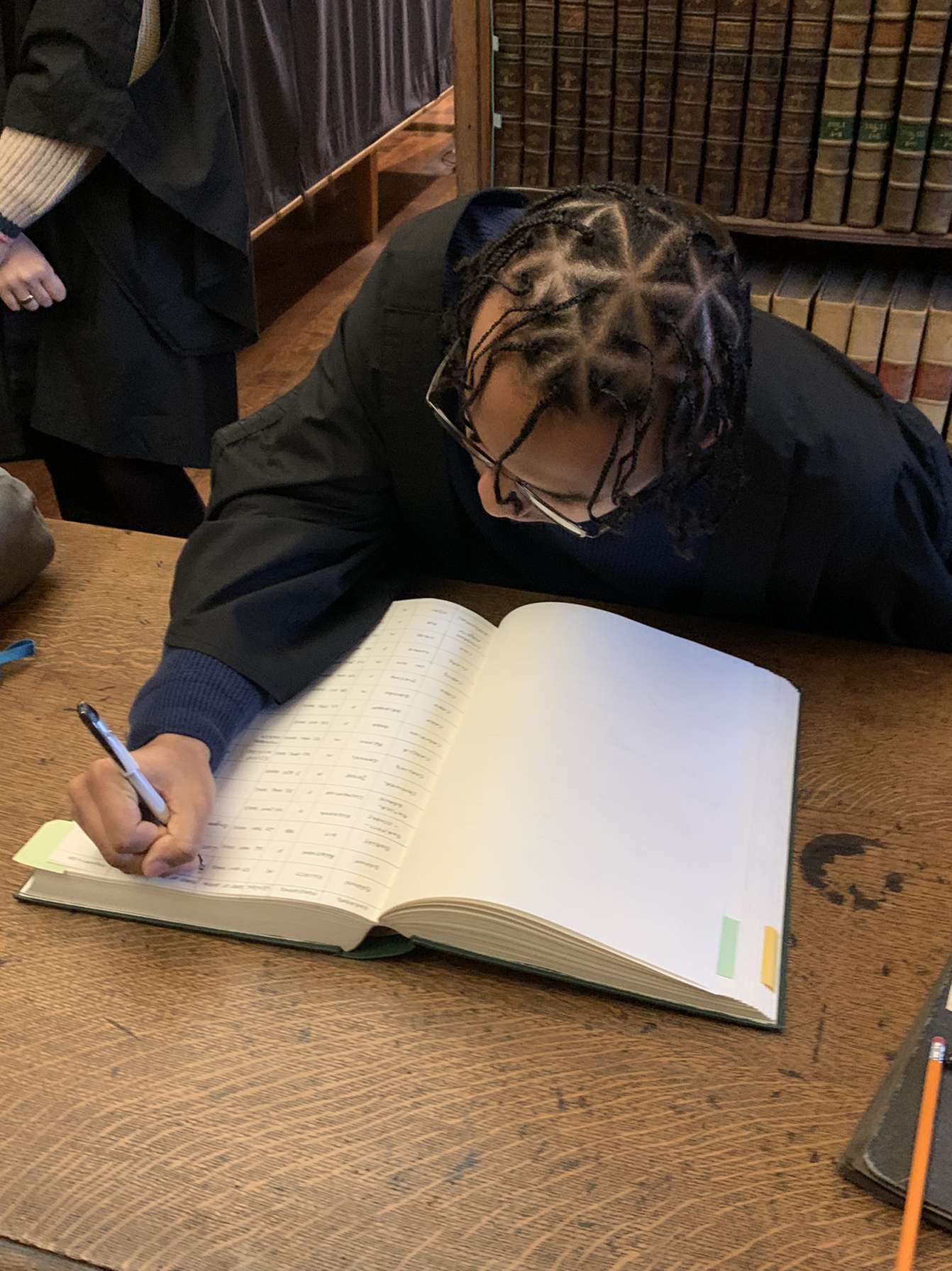
I remember our first assignment was about how different languages express time; we had to watch a video and write about it. I remember thinking that it was a bit washy and unscientific, but it was interesting! You cover a lot of different topics in first year, so the bits I wasn't so keen on didn't last long, and the bits I liked I could carry on into second year. We had a really cool assignment later on where we heard audio of a speaker, and had to transcribe it and try to work out where they were from, I really liked that. So there were some really interesting early assignments! The first lectures were really good as well.
What's different about your work now compared to what it was like at school?
You don't do linguistics at school, so it's obviously very different, but there are some aspects that are the same. Like it's nothing like art, but they both have that element of research involved. I use some of the same terminology now as I did learning Spanish, but learning a language is very different to studying linguistics. It's probably most similar to psychology. Li3 (Language, brain and society), the first-year paper featuring psycholinguistics was very similar to psychology, both in terms of the content and the style of question you would answer. We would be given the data from an experiment and have to interpret that in terms of what we've learned, which we also had to do at A-level.
The pace and format of university work is completely different to A-level: doing lectures, assignments, and 1500 word essays are very different to being in school. That was a whole new technique I had to learn; I still am!
What does your timetable look like?
In first year, we had four lectures a week (one for each paper), plus a 'General linguistics' lecture, which wasn't compulsory but they encouraged you to watch. Supervisions were less regular; there were three or four per paper per term, but you could end up with four in a week, or just a couple. It didn't feel particularly busy in terms of contact time, though we did have plenty of work to do. They tend to arrange supervisions so you have a few weeks without any at the beginning of each term to learn some content, but then a few come along at once: I'd advise people to start the work early, becuase there isn't enough time to do it at the last minute!
Second year felt busier, even though it was the same amount of time: four lectures a week, four supervisions a fortnight. That was just becuase of the way things fell for me, I had three lectures and a 'practical' session (where we look at language samples and real examples of the things we've studied) every Wednesday, but 2 days in the week with no contact hours at all. Unlike at school, there isn't the same routine every day, so you really need to be able to plan time.
What are the best and hardest things about your course?
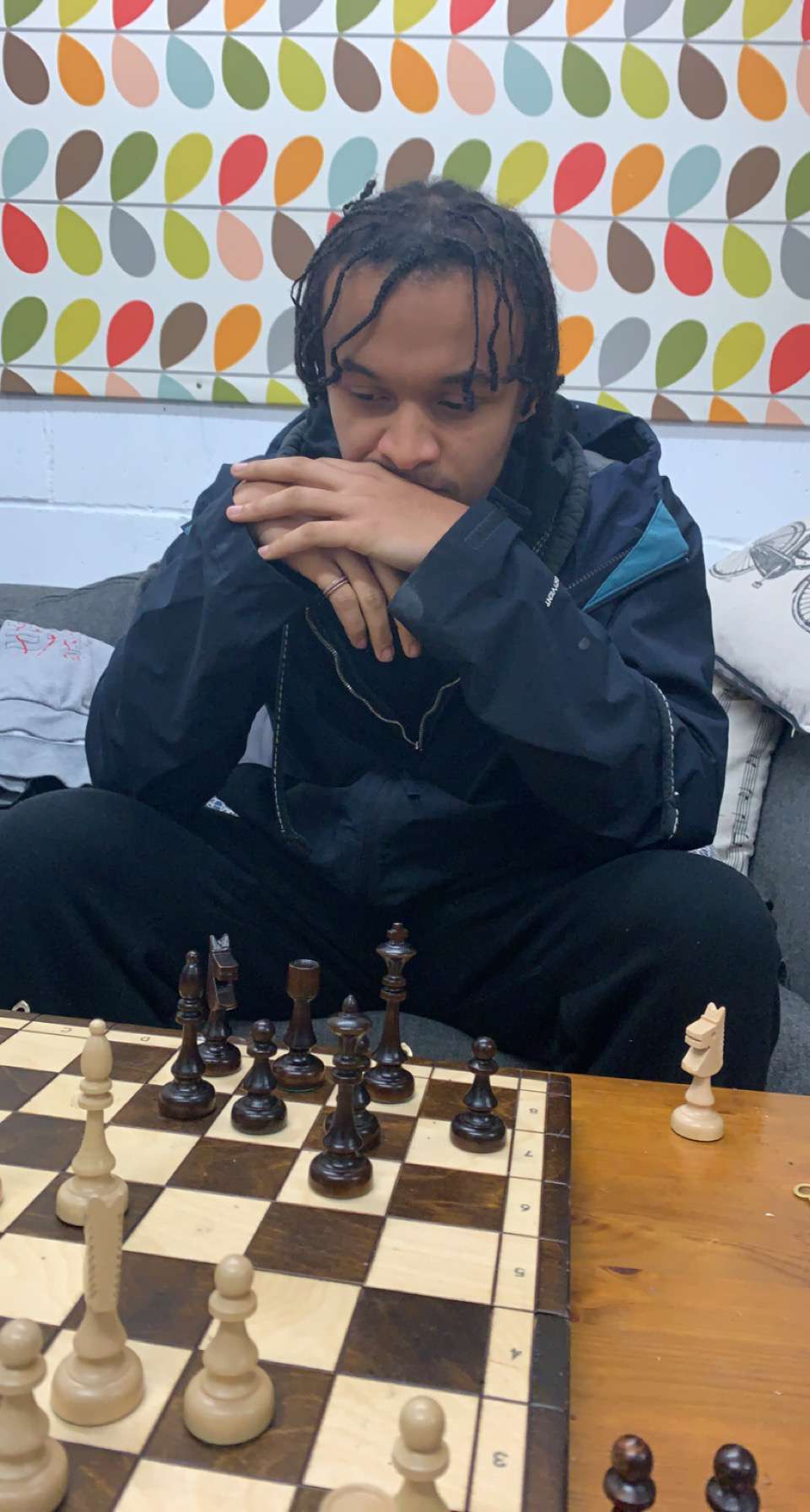
The hardest thing is telling people that you do linguistics and having to explain what it is! You come up with a short answer eventually, but the course being so broad does not make things easy. That also means you have to specialise, although one good thing about the courses here is that you can take them in any combination, so you can take very disparate courses if you want to.
The best thing is that by learning about language, you sort of accidentally learn about loads of other stuff. I came into it wanting to learn about psychology (and I still think that linguistics is arguably a branch of psychology), but I've also learned about philosophical topics, culture, geography. I think language is a good avenue to learn about the world and become 'worldly'.
What has your favourite topic been this year?
I really liked Semantics and Pragmatics - meaning and stuff. Our exams this year were open-book and fairly long, which meant that when I saw an interesting question about the concept of meaning, with philosophical and sociological topics, I could do some research and make an answer even though I didn't have a good deal of background knowledge. It was very interesting, and I've decided I want to do my third-year dissertation on a similar topic.
Where do you typically like to work?
Christ's library is open 24 hours a day, so if it's the only place open, I'll go, but otherwise I try to find different places. In college, I like the Plumb Auditorium (one of the extra study spaces College opens up during exam term). I also really like the Modern and Medieval Languages and Linguistics library. This has the added advantage of having all the Linguistics books there, which sometimes aren't available in Christ's library. I work in my room sometimes too.
What do you do when you're not working?
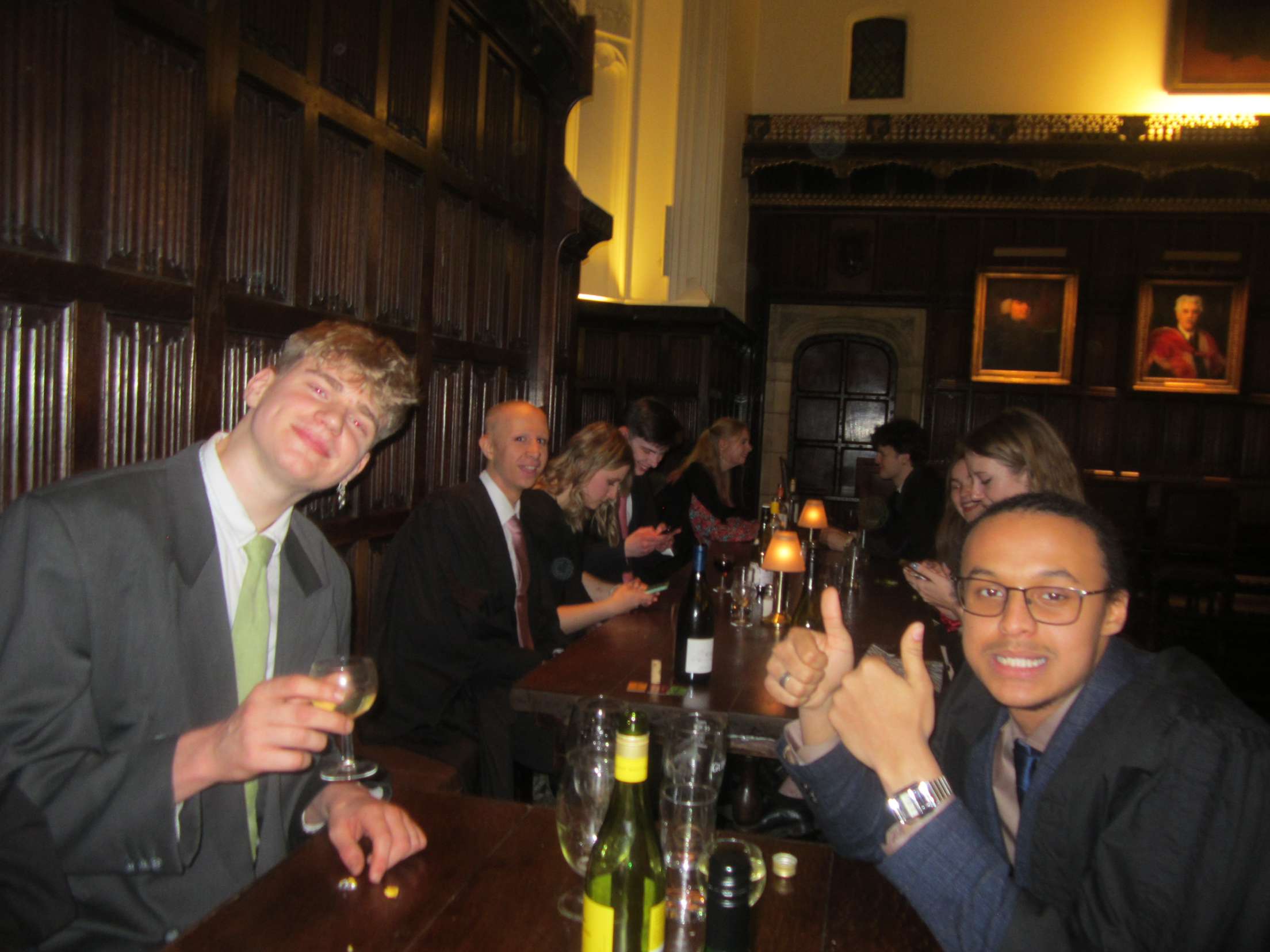
I made some really good friends in first year, and during term time we use the Buttery a lot: in the evenings we'll go and get a pint, play some darts. We spend a lot of time by the pool in the summer, or go to one of the pubs nearby, like the King's Street Run. I've been out clubbing a few times in Cambridge: it's not as good as other cities, but it's all right if you're with good company.
I've done a lot of sport here, too. I play football for the Christ's first team. We're not very good, but we do have a lot of fun! I also did boxing for the University for a while, until I broke my hand... I've been to some talks hosted by other uni-wide societies, such as the Psychedelic Society, who host some interesting stuff. I signed up for loads of societies in first year, and if any of them host anything interesting, I'll just turn up. I think I've got a nice holistic mix of hobbies.
Formal hall is good too, I wish I'd gone more often this year. For a three course meal, it's cheap as chips, and you can sit in a fancy hall and have a bottle of wine with your mates. You can't do that anywhere else, it's a uniqely Cambridge thing, and Christ's has them most days of the week.
What do you enjoy about student life?
Having my friends so close by is huge: every night, you can just walk across a corridor and knock in on a mate, and just have a chat. At home, it might be 20 minutes; it makes a big difference and allows you to become so much closer with your mates. We cook dinner together, chill together, do work, it just makes small, boring tasks better.
Where have you lived this year?
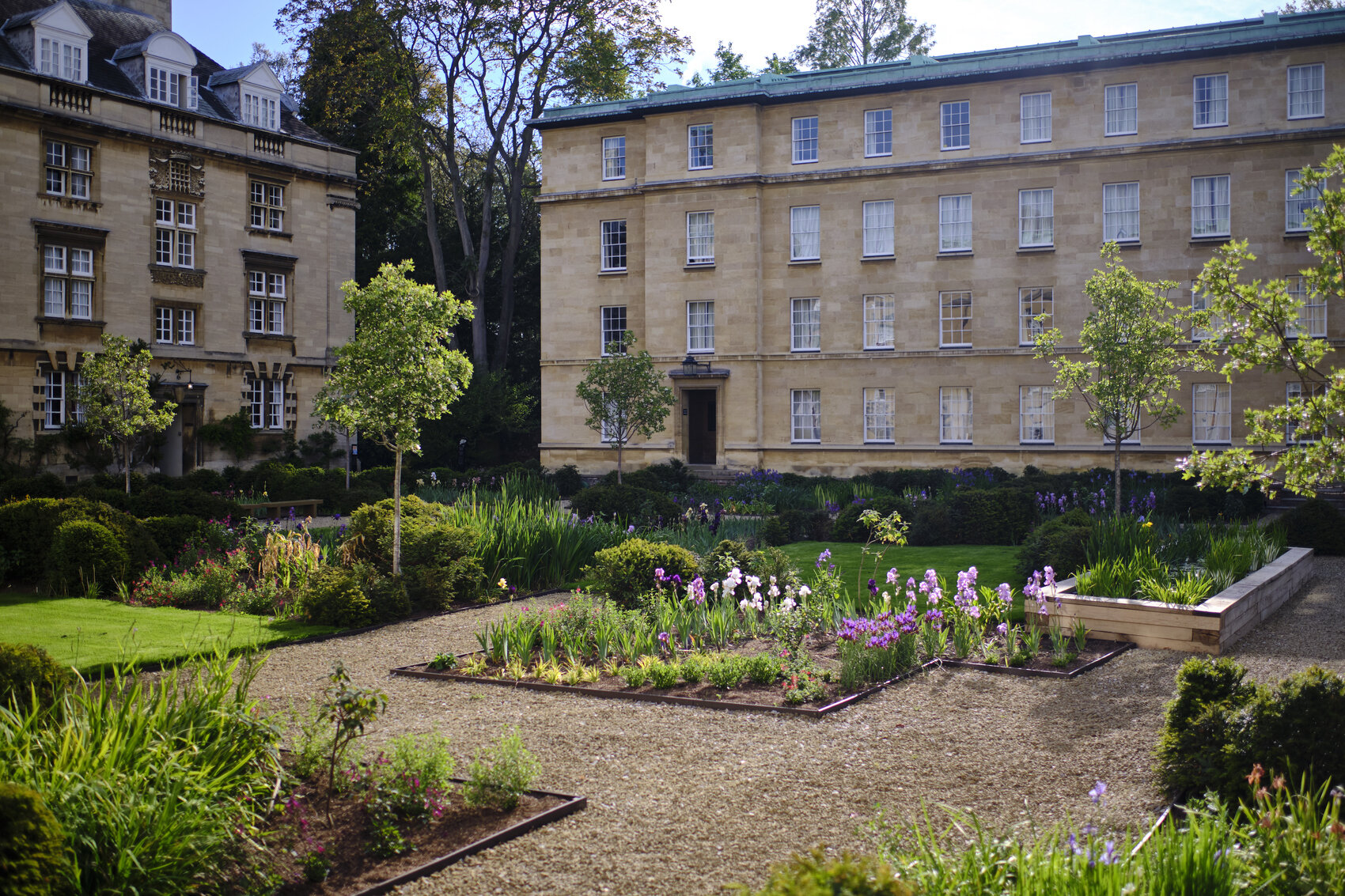
This year I lived in a College-owned shared house on St. Andrew's Street, just opposite the college. It was a lot of fun! I think it's the best house. I was with some of my mates, we had some parties. There was a nice kitchen and shared area (with an oven!) and there were always people coming and going. My room was really nice, it had a nice big window onto St. Andrew's street for people watching. It was kind of the dream, and I'm sad to leave. Next year, I'm on the top floor of the Blyth building. It's got a good view, and the room itself is probably bigger than the one I have now, but I'll miss having a shared space with just my friends.
What are you looking forward to next year?
I really want to do next year right: go to all of my lectures and do all of my supervision assignments as best as I can, get organised and finish strong. I'm looking forward to getting on with my dissertation and building up a good relationship with my dissertation supervisor. I'm taking Psycholinguistics, which I'm really looking forward to, and Computational Linguistics, which will be a challenge, but also very useful when I'm looking to find a job.
Non-academically, I'm looking forward to going back to boxing, and maybe competing against Oxford at Varsity. I'm also looking forward to spending more time with my friends and finishing on a high.
July 2022
Please be aware if you're considering an application that our student writers describe their experiences. Although the majority of the information stays the same, some details may change from year to year. Do read the student profiles in combination with our undergraduate admissions pages for full information.
Back to Student profiles page / Linguistics at Christ's / Next: Leah's profile
